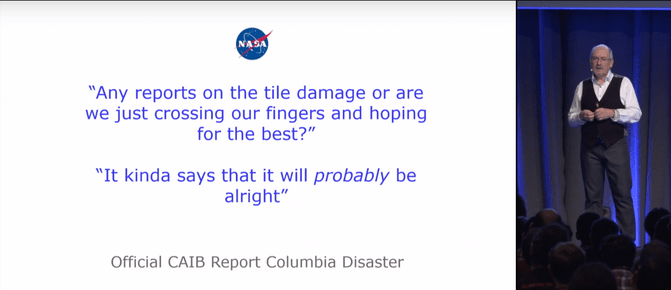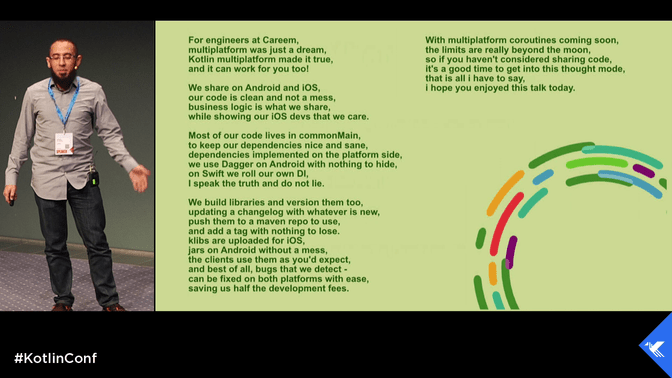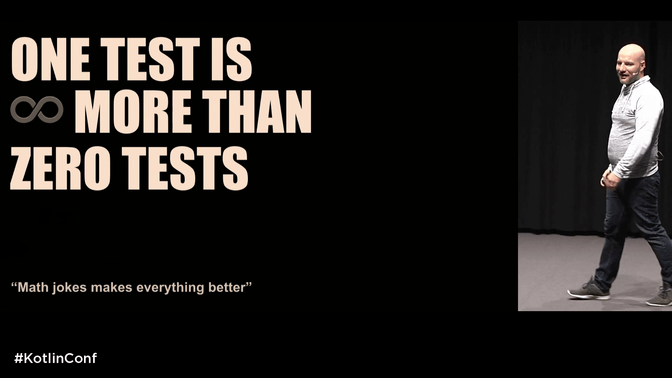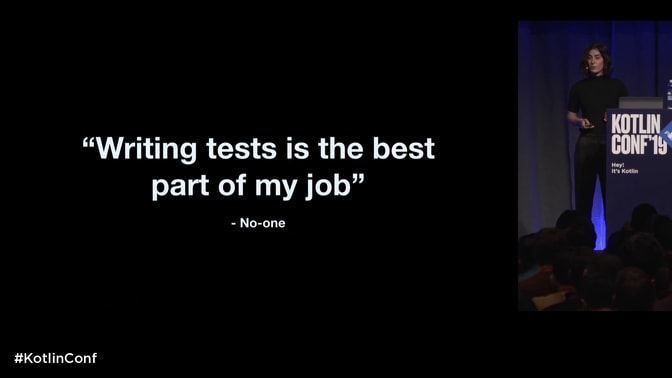As there were 4 tracks, I did not have the opportunity to watch everything I wanted there, but the organizers made it all available on YouTube!
Here is my very subjective top 5 of the talks.
The shuttle case

The most inspiring talk at KotlinConf was not about code, but a tale of company culture, reaction to change and risk management. In 1986, NASA launched the Challenger shuttle with 7 people on-board. The shuttle exploded seconds after its launch, killing the poor astronauts. Their deadly fate was known well before the launch by an engineer, but he was not listened because of political reasons. What can we learn from this and take with us today? If you have time for only one video, then this is the one.
This talk was not cut into its own video, but you can watch it from the whole day's streaming: https://www.youtube.com/watch?v=E4F0YU8Jd5g&t=415s
Your multiplatform Kaptain has arrived

Let's address the elephant in the room. This year's edition was all about Kotlin/Multiplatform. The creators of Kotlin aim to make it a general purpose language and are on the right track to achieve it. As mobile developers, what interests us more is obviously using Kotlin to share code with the iOS app. Ahmed El-Helw tells us a story about their path to build the Careem app.
Watch it at: https://youtu.be/R61N5yJGhKI
Bridge the physical world: Kotlin/Native on Raspberry Pi

But Kotlin/Multiplatform is not only about mobile, Qian Jin showed us how she built a rock-paper-scissors(-lizard-Spock) game with Kotlin/Native on a Raspberry Pi, with servomotors, a camera and machine learning.
Watch it at: https://youtu.be/KfdNiMP0emE
Testing with coroutines

Another big topic was coroutines. Testing code with coroutines can be quite tricky when you don't know where to start. "Testing with coroutines" gives us the basics to do it right.
Watch it at: https://youtu.be/hMFwNLVK8HU
Testing: testing

While we are on the testing topic: "Testing: testing" makes us reason about… testing. What should we test? Can we find ways to improve our code quality without blindly adding tests to everything? One way is to use the power of Kotlin to prevent errors than can be seen in other languages. Type safety, nullability, compilations checks and others help us write safer code, which actually reduces the number of tests needed.
Watch it at: https://youtu.be/SIr7mcnVy98
Let's meet in 2020!
I hope that this list can inspire you as much as it did for me. It looks like Kotlin/Native and coroutines will be my focus at Liip in 2020.
I'm looking forward to using Kotlin more and more in my work, and patiently wait for the announcement of KotlinConf 2020 😉.

